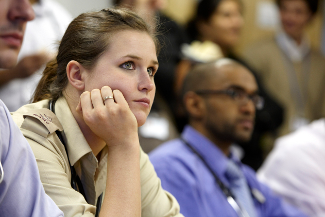 With thanks to Witty Sandle, Careers Adviser for University of Warwick Careers Service, for her valuable contributions to this information.
With thanks to Witty Sandle, Careers Adviser for University of Warwick Careers Service, for her valuable contributions to this information.
Work your way through these pages to find out:
- The ways in which you can work in the armed forces
- Experiences of those who have done it before you
- How you can get involved in working for the armed forces
- When you can undertake a career with the armed forces
- Further relevant resources
What are the ways in which you can work in the armed forces?
Visit the Defence Medical Services website here
Royal Navy
If you fancy practising medicine in a varied and challenging environment, whilst enjoying different activities, then a medical career in the Royal Navy could be the opportunity you are looking for.
Specialists are needed in the major disciplines of surgery, medicine, anaesthetics, orthopaedic surgery, primary care and occupational medicine. Further specialisations are available in submarine, diving, aviation and radiation medicine. There are also opportunities for research at the Institute of Naval Medicine and elsewhere.
Royal Navy pay compares well with similar civilian jobs. As well as basic pay, you will be offered extra money for special skills and daily allowances for being at sea after a certain period. You will also be offered a pension scheme, six weeks annual leave on full pay and free medical and dental care
Find out more about a career in the Royal Navy here
Royal Air Force
Medical Officers in the Royal Air Force can go on aeromedical evacuations, providing vital assistance on search and rescue missions or emergency relief flights worldwide.
Army
The Royal Army Medical Corps commissions doctors for primary (General Practice) or secondary (hospital) care. Your duties would include practising medicine and undertaking some non-medical officer duties. If your unit deploys on exercise or operations, you will go with them.
Territorial Army
The Territorial Army Medical Service is organised into 10 independent field hospitals, 2 medical regiments and 6 medical squadrons, located throughout the UK. Field hospitals are deployed at short notice to operate in the field. Medical regiments consist of medical squadrons that are small, highly mobile medical units that can respond rapidly.
There are also 2 National Units that recruit across the UK and provide a field hospital, an evacuation regiment and specialist teams.
Although as a medical specialist you will not be expected to fight on the front line, you will be trained in military procedures. This is so that you can carry out your work in a combat environment, defending yourself or your patients if necessary. All Territorial Army members receive pay equivalent to that of the regular army, which varies according to rank, role and commitment. Members are paid for every hour of training completed. They also receive free travel, meals and standard uniforms. If a member completes their annual minimum time commitment (27 days a year for Independent Units and 19 days a year for National Units, including the annual two week camp), they will qualify for a bounty. The bounty is a tax-free lumps sum which starts at £371 for the first year, rising to £1462 after 5 years satisfactory service